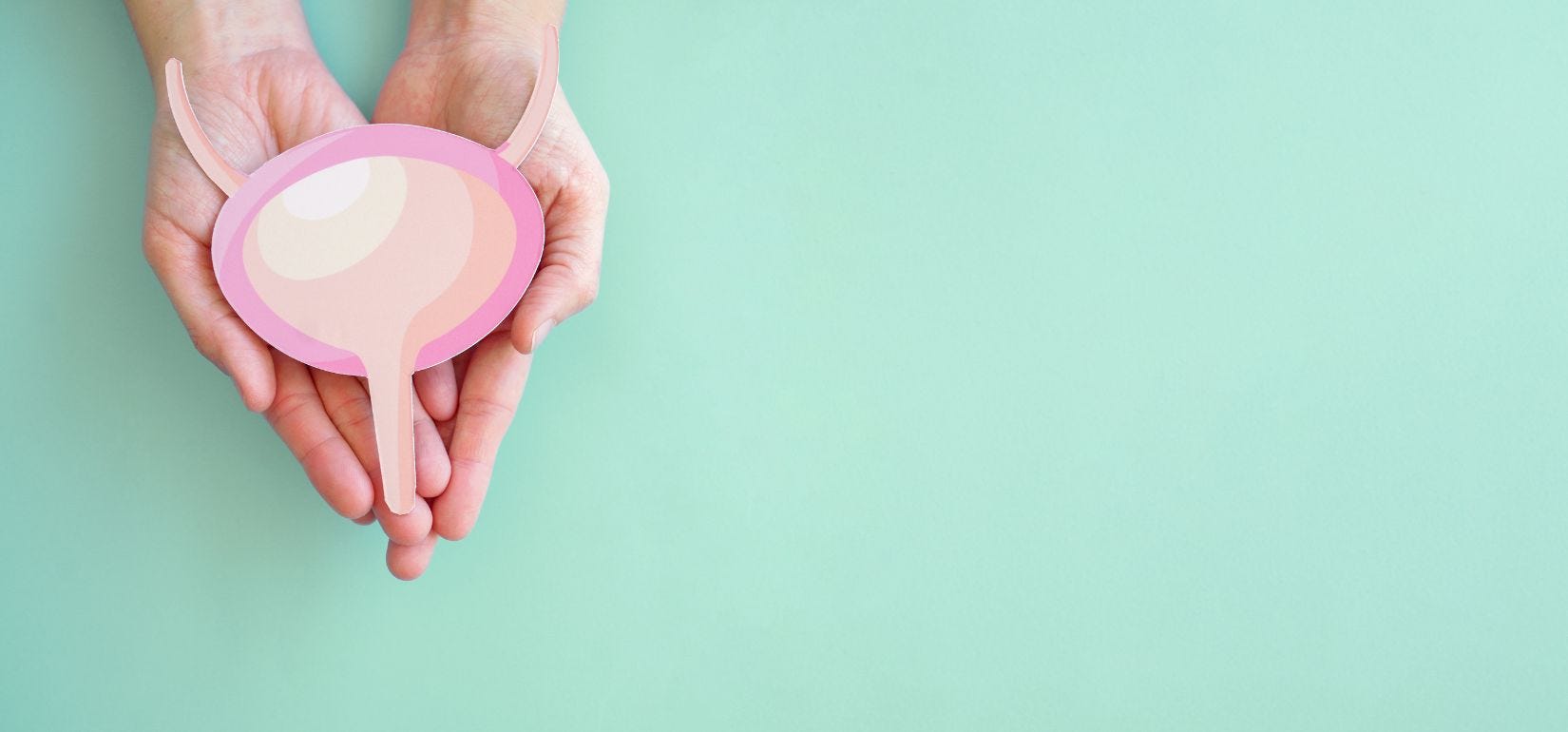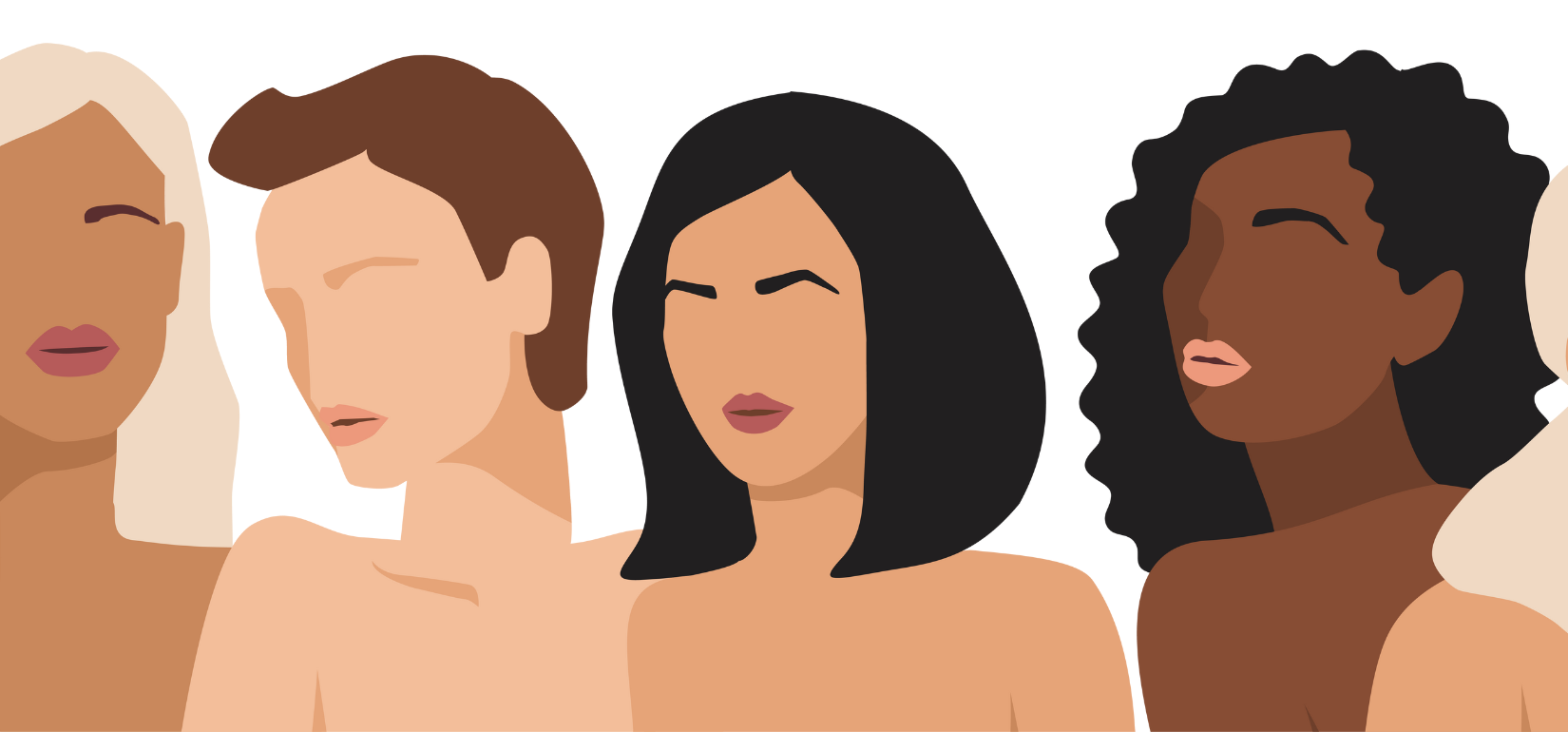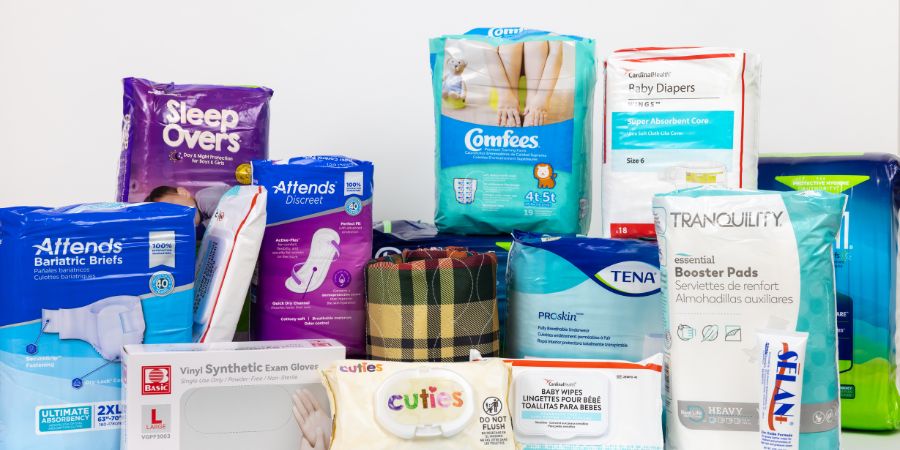The concept of “self-care” has surged in popularity in recent years, and caring for yourself extends to every part of your body, including your urinary system!
Being mindful of your bladder allows you to discreetly prevent and manage conditions like urinary incontinence (the loss of bladder control) without much time or effort.
Keep reading to discover why bladder health is essential, how to keep your bladder healthy, and how to prioritize bladder self-care.
What Conditions Can Develop In an Unhealthy Bladder?
Urinary Incontinence
Urinary incontinence (UI) is the loss of bladder control and involuntary loss of urine. Those with UI may experience a range of symptoms, from slight urinary leakage to total bladder emptying on accident. Types of UI you can experience include:
Urge Incontinence. Causes the sudden, strong urge to urinate, and people may not make it to the restroom in time. This is often referred to as overactive bladder (OAB).
Check Your Eligibility
2 Easy Steps
Discover the bladder control supplies covered by your Medicaid plan.
Stress Incontinence. Occurs when urine leaks due to weakened pelvic floor muscles or bladder sphincter muscles when stress is exerted on the bladder due to physical activities such as laughing, coughing, or exercising.
Functional Incontinence. With this type, people are aware of the need to urinate, but mental or physical conditions such as dementia or impaired mobility prevent them from getting to the restroom in time.
Overflow Incontinence. Occurs with urinary retention, resulting in urine dribbles and leakage.
Mixed Incontinence. Experiencing 1 or more types of UI symptoms at once.
Interstitial Cystitis
Interstitial cystitis (IC), commonly referred to as painful bladder syndrome, is a condition with chronic pelvic pain, pressure, or discomfort, perceived to be related to the urinary bladder, accompanied by other urinary symptoms. These symptoms can include a persistent urge to void or urinary frequency in the absence of confusable diseases.


Urinary Tract Infections (UTIs)
UTIs are infections that can occur in any part of the urinary system, including the kidneys, bladder, uterus, and urethra. However, UTIs most often occur in the lower urinary tract and are more common in women because they have shorter urethras. This makes it easier to introduce bacteria to the urinary tract. Oftentimes, UTIs are caused by wiping from back to front, bringing bacteria from the anus forward, chronic urinary retention, surgical implementation, and catheter use. It can also be caused by sitting in wet clothing or soiled diapers and improper hygiene practices.
Nocturia
Nocturia refers to frequent urination during the night. Waking up needing to use the restroom more than 2 times during the night or during 6 to 8 hours of sleep could be caused by this urinary disorder, or caffeine or alcohol consumption before bed. Nocturia is more common in men and women over the age of 60 but can occur at any age due to menopause, childbirth, or an enlarged prostate. It may also be a symptom of another disorder, such as diabetes, high blood pressure, heart conditions, sleep apnea, insomnia, and restless leg syndrome.
10 Ways to Prioritize Bladder Self-Care
1. Listen to Your Body
When you feel like you have to pee, head for the toilet! Holding in pee chronically for prolonged periods of time (over 4 hours) can cause bladder issues and UTIs. And stop going, “Just in case!” This can lead to a myriad of bladder problems.
2. Use Bladder Control Products to Manage UI
Using toilet paper to soak up leaks or ignoring the problem will only exacerbate it and make your days uncomfortable. While it may be hard to transition into using bladder control products, you can find discreet, high-quality items so no one has to know you use them. Bladder control pads and adult protective underwear are the best in these situations (but it all depends on your level of leakage).
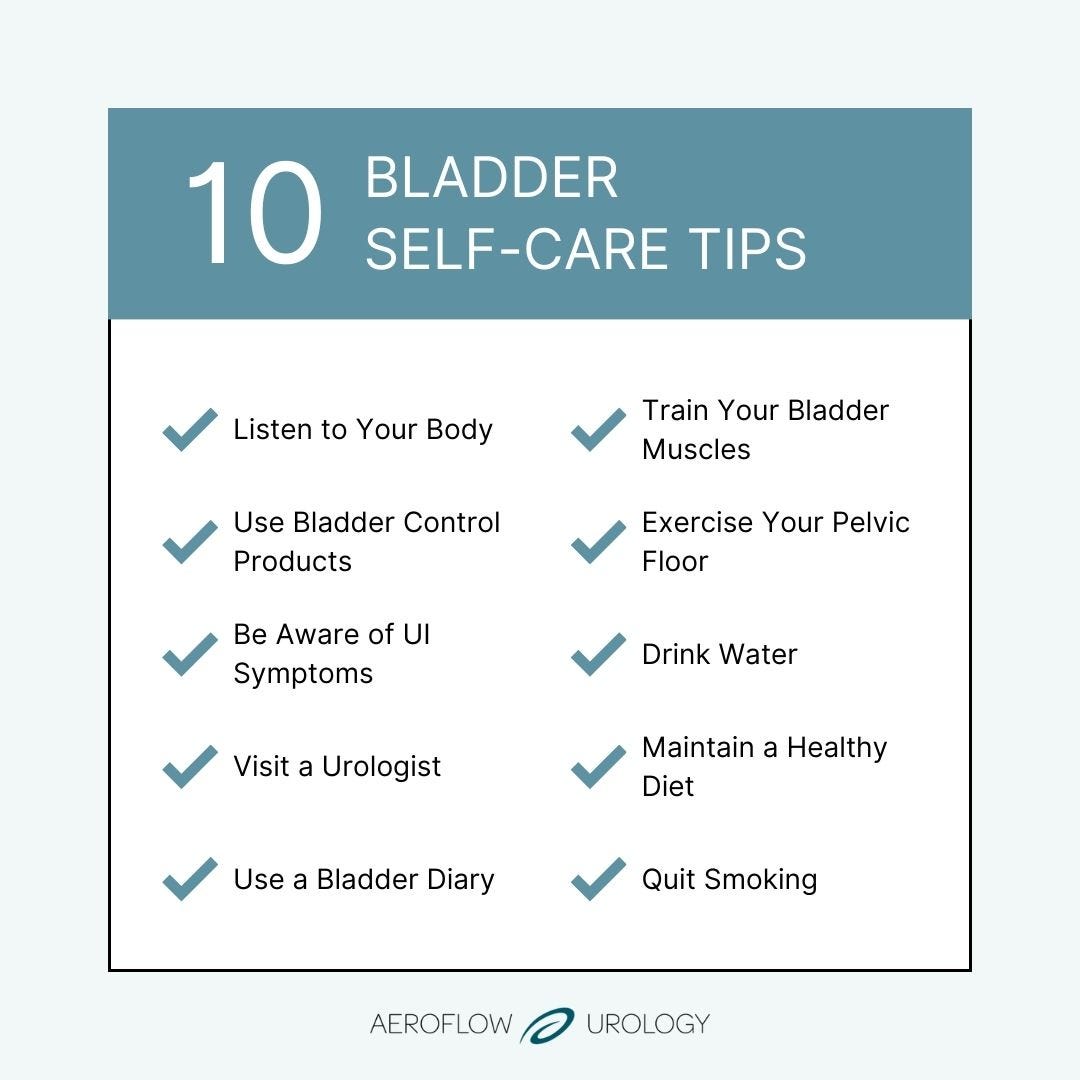

Aeroflow Urology may be able to supply you with free incontinence products every month and deliver them straight to your door for free! All you need to do is check if you qualify with our secure Eligibility Form. After filling it out, one of our dedicated Continence Care Experts will reach out to you after they obtain a prescription from your healthcare provider.
3. Be Aware of UI Symptoms
Be aware of the symptoms of UI, such as:
- Dribbling urine after peeing.
- Leaking urine when you laugh, cough, sneeze, or exercise.
- Leaking urine when you get the urge to urinate.
If you already have UI, specific lifestyle changes can help you regain your quality of life.
4. Visit a Urologist or Pelvic Floor Therapist
One of the most significant aspects of incontinence care is creating an effective treatment plan that fits your unique needs. Your urologist will be able to diagnose your specific type of UI and prescribe any necessary medications or treatment options.
Each type of incontinence will require a different treatment plan, so it is important to avoid simply self-diagnosing yourself. It is also important to remember that incontinence symptoms can be the result of a more serious diagnosis, so a visit to your healthcare provider is recommended.
5. Use a Bladder Diary
Keeping a Bladder Diary is a simple yet effective way to practice daily bladder self-care. A Bladder Diary allows you to track your bladder control symptoms for both yourself and your healthcare provider while also tracking progress if you are working on treatment options such as bladder training, diet changes, or various bladder medications.
For each page of the Bladder Diary, simply take note of the amount of liquid you drink and the type of fluid you drink, how many times you use the restroom per day and night (including any accidents), as well as any notes you may want to keep track of for future reference for yourself or your healthcare provider.
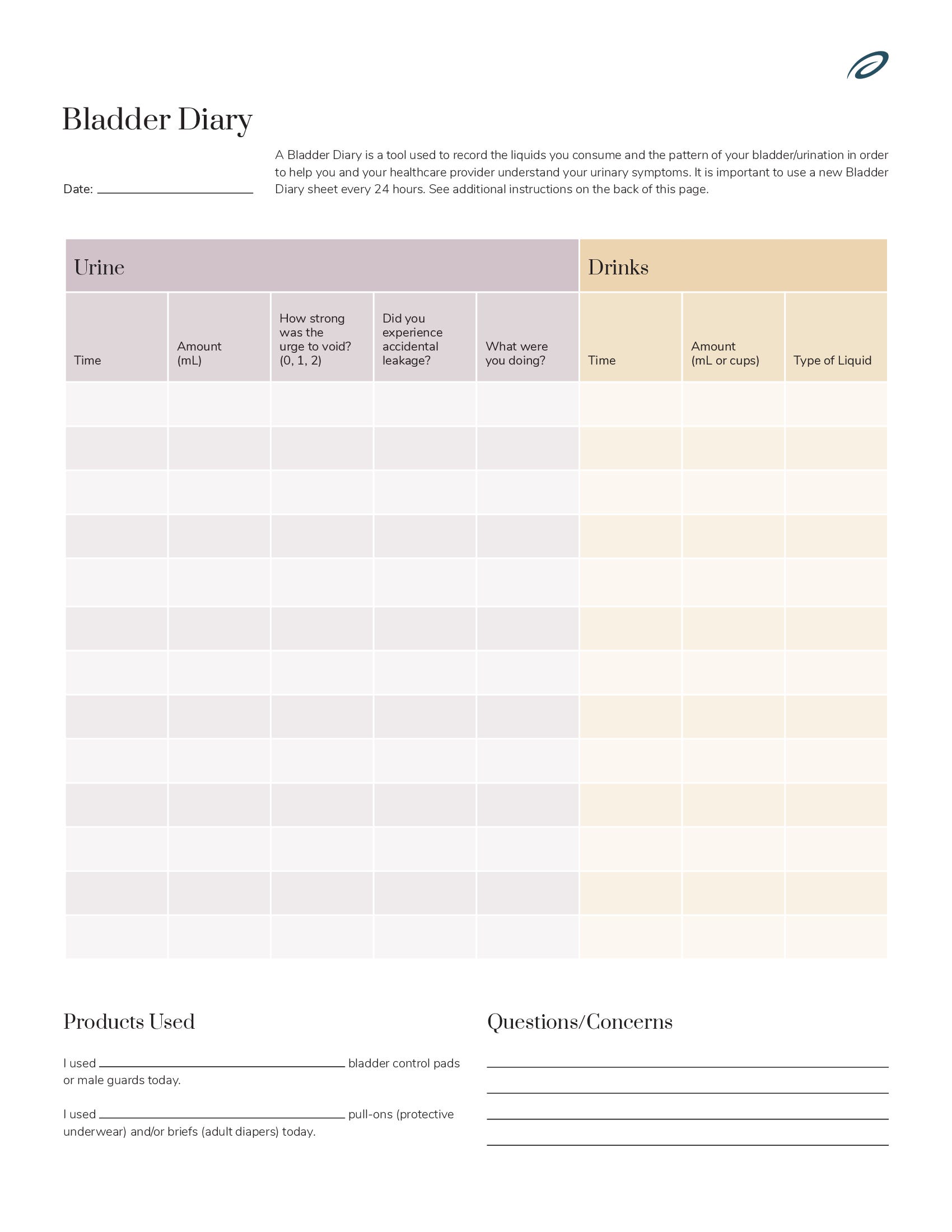

6. Train Your Bladder Muscles
With the help of your Bladder Diary, you can also identify your bladder’s regular routine and use this information to your advantage. Instead of waiting for the urge to use the restroom to occur, you can try to use the restroom based on your schedule. You can also practice delaying urination once the urge strikes to retrain your bladder to feel urges on a “typical” schedule. Urinating every 2-3 hours is considered typical.
You can start to train your bladder in small increments by trying to hold off for 10 minutes when you feel the need to go and then gradually expand the amount of time between bathroom breaks. Remember, your bladder is like any other muscle in your body; it can take some time to strengthen and grow stronger.
7. Exercise Your Pelvic Floor
Implementing healthy lifestyle changes can indeed reduce pressure on the bladder, but there are also specific exercises and stretches that you can do to target the muscles that control urination. Your pelvic floor muscles control many bodily functions, but the function that is most important to your incontinence self-care is urination. Pelvic floor muscle exercises have proven to be extremely helpful for self-care for both women and men.


There are many pelvic floor exercises that beginners can easily incorporate into their daily routines. You can even do Kegel exercises sitting in a chair or lying in bed! We recommend starting with 3 sets of 10 reps and building up your reps as you become more confident in your pelvic floor strength.
8. Drink Water
Dehydration can cause your urine to become more concentrated, leading to an irritated bladder and frequent urges to urinate. Drink enough water throughout the day as you feel your body needs. Even if you are experiencing UI symptoms, don’t limit your fluid intake! Doing so could prevent your body from flushing out toxins and waste.
9. Maintain a Healthy Diet
Maintain a healthy diet full of whole grains, fresh fruits and vegetables, and a variety of foods with high vitamin content. Avoid food and beverages that are bladder irritants, such as caffeine, artificial sweeteners, spicy foods, sugary items, alcohol, and fried fatty foods.
10. Quit Smoking
Not only does smoking generally irritate the bladder, but it can also cause bladder cancer, erectile dysfunction, interstitial cystitis, kidney cancer, infertility, and more. Stop smoking for a healthier bladder.
Fun Bladder Facts!
- Your bladder walls are made of wrinkly skin called rugae, which allow your bladder to expand and fill with urine.
- Your bladder stores urine and can hold up to 2 cups of urine.
- It’s considered “normal” to go to the bathroom up to 8 times daily.
- Your pee can be different colors, but healthy pee is shades of light yellow. Other colors of urine indicate health issues.
- The female urethra is shorter than the male urethra (extending from the vagina to the bladder), meaning that females may be at greater risk of getting more UTIs than males.
- Chronically holding in your urine can lead to UTIs.
- Constipation can cause bladder problems. When you can’t make a bowel movement, the hard stool pushes on your bladder, causing it to feel fuller faster.
- Your kidneys make urine filling your bladder every 10 to 15 seconds.
- An empty bladder is the size of a pear.
- Your pelvic floor holds up your bladder.
- You can pee in ways that may negatively affect your bladder.
Remember: UI is prevalent in males and females, but it’s not normal and can be prevented and reversed! By taking care of your bladder, you’ll also take care of your overall health.
Information provided on the Aeroflow Urology blog is not intended as a substitute to medical advice or care from a healthcare professional. Aeroflow recommends consulting your healthcare provider if you are experiencing medical issues relating to incontinence.

